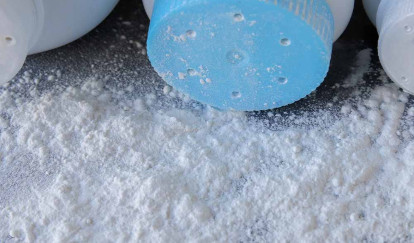
Talcum Powder Litigation
Commonwealth Law Group is reviewing potential legal claims on behalf of women who developed mesothelioma and/or ovarian cancer after using talc powder or other talc products.
About the Talcum Powder Lawsuit
Since 1971, more than 20 studies have linked talcum (talc) powder to ovarian cancer, and, in 2003, an analysis of 16 of these studies found that women using talc powder were 33 percent more likely to develop ovarian cancer. It has been alleged that Johnson & Johnson (“J&J”), the maker of talc-based products, knew about the risks of ovarian cancer since at least 1982, and didn’t warn women using these products about the potential risks.
Additionally, recently unearthed information reported by The New York Times uncovered that J&J knew of a possible link of asbestos to their talc products. According to an article they published, J&J spent decades trying to hide this negative information from the public.
Can Talcum Powder Cause Cancer?
Researchers have been studying the potential link between ovarian cancer and talcum powder for decades. It is now believed that talc powder when used near the genitals, can travel to the ovaries and become embedded in ovarian tissue. Although talc is a natural mineral, it is very difficult for the body to remove the particles, and, as a result, inflammation may occur and cancerous tumors may form.
The Lancet, a medical journal, first published that talc may cause ovarian cancer in 1971. Researchers discovered that a majority of ovarian tumors had talc particles “deeply embedded” in them. Afterward, in 1982, researchers found that women using talc powder while ovulating were at a 92 percent increased risk of developing ovarian cancer. Over the next three decades, an additional 21 studies were performed on talc powder, and almost all of them found that women using these products near their genitals were at an increased risk for developing ovarian cancer.
To date, both the American Cancer Society and the National Cancer Institute consider talc use near the genitals as a “risk factor” for ovarian cancer. Despite this possible link, Johnson & Johnson and other talcum powder manufacturers have not placed warning labels about this risk on their products.
Talcum Powder Lawsuits FAQs
Contact Commonwealth Law Group Today
Contact us today at (804) 999-9999 or by using our online form for a free consultation. Please note that someone from our legal team or one of our trusted affiliate partners may respond to your inquiry.
“Great law group. Everyone was kind and down to earth. Made me feel like I was their only client. Very attentive to me and my case.”
Karen Jacobs
If you have been injured at work or through the negligence of another individual or entity, contact us at (804) 999-9999 or or use the form below to connect with our legal team. We will fight to get you the justice you deserve.
